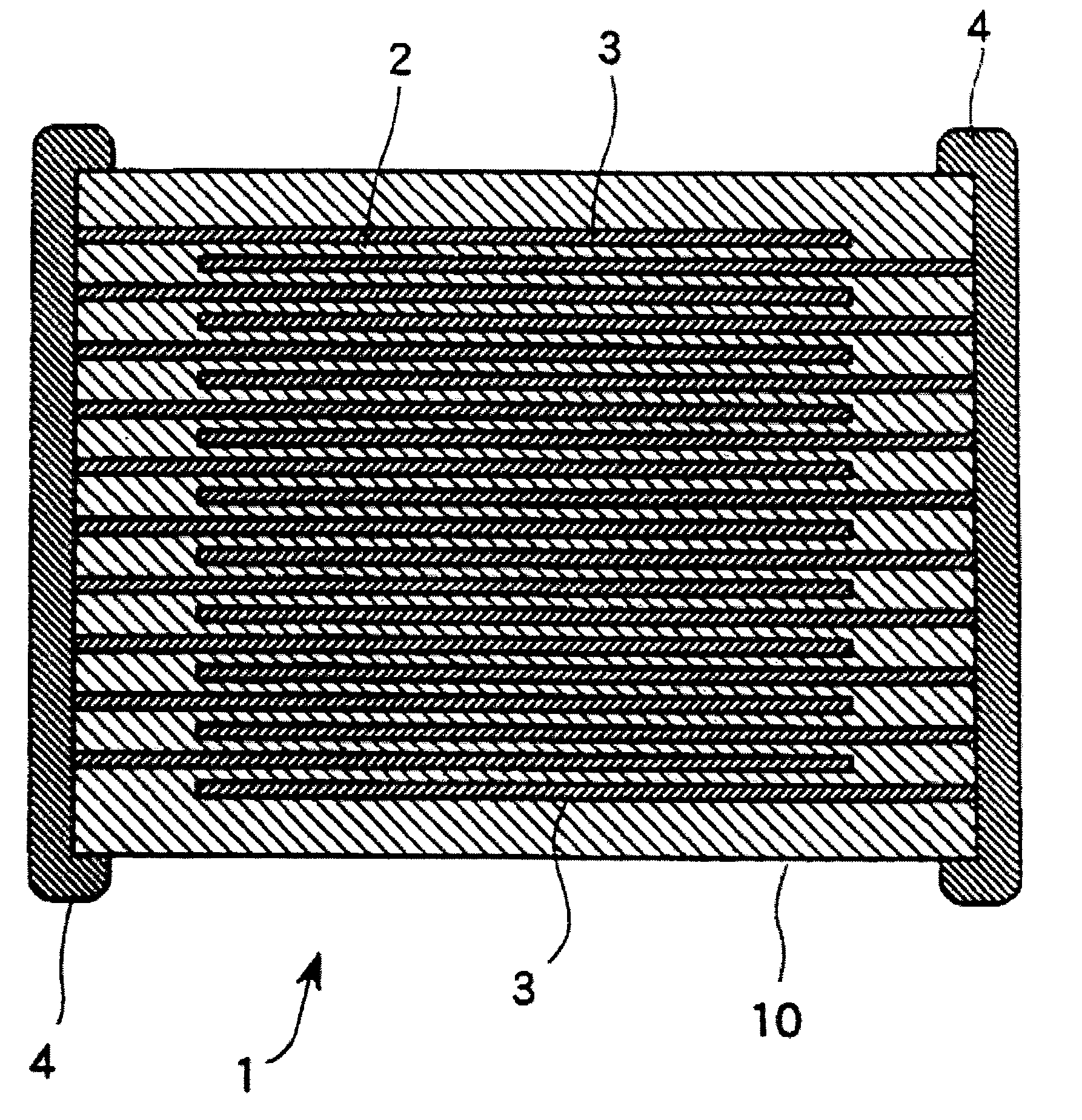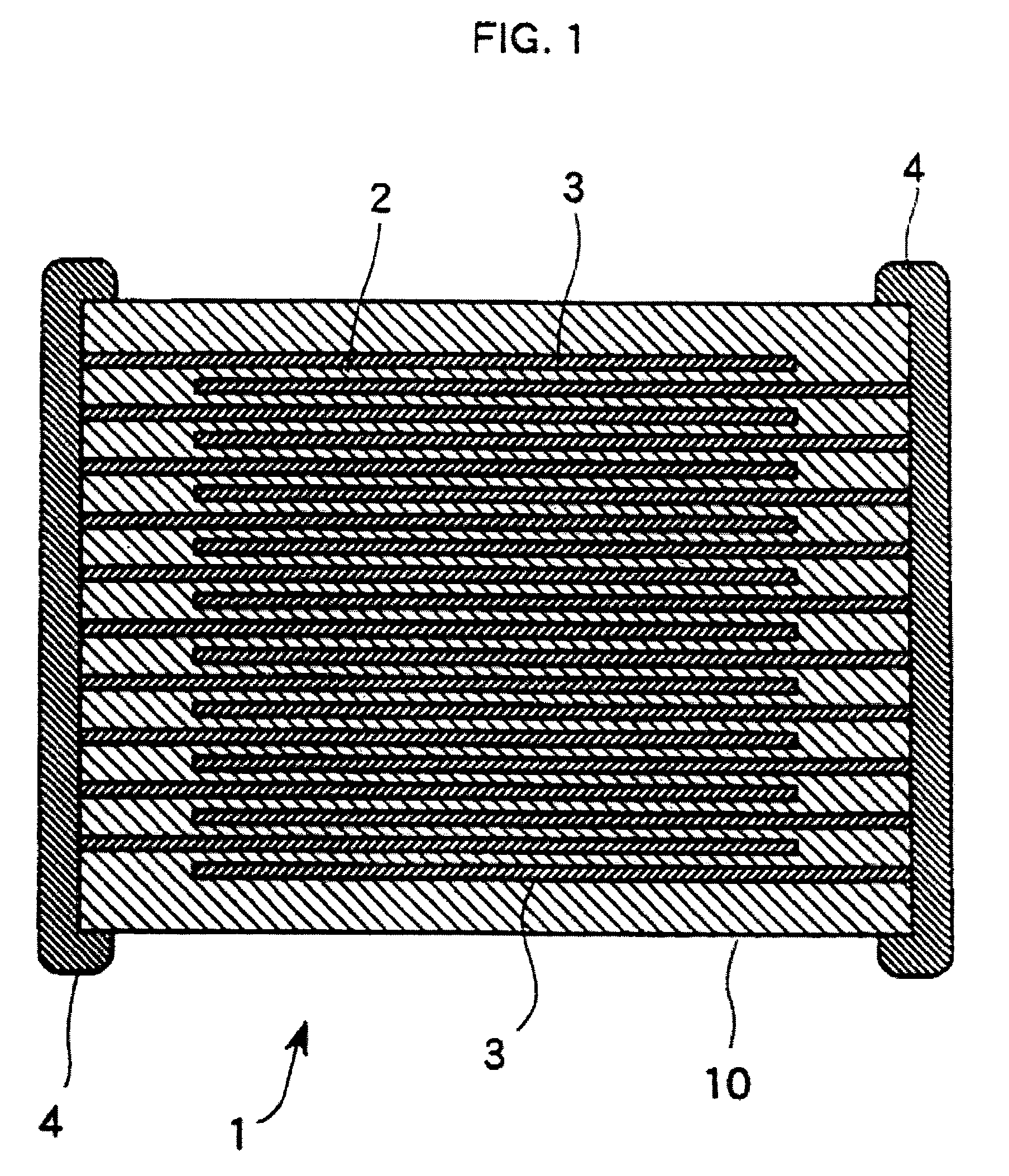Copper termination inks containing lead free and cadmium free glasses for capacitors
a technology of copper termination and copper glass, which is applied in the direction of fixed capacitors, fixed capacitor details, stacked capacitors, etc., can solve the problems of air fired conventional multi-layered ceramic capacitors, however, which are rather expensive, and achieve improved chemical resistance to plating solutions, improved adhesion to substrates, and wider processing windows
- Summary
- Abstract
- Description
- Claims
- Application Information
AI Technical Summary
Benefits of technology
Problems solved by technology
Method used
Image
Examples
examples
[0043]Glass frits J through N were each prepared using conventional glass melting techniques, and have the compositions in mole percent, as shown in Table 4. The glass transition temperature (Tg), coefficient of thermal expansion (CTE), and compositional ratios (mole B2O3 / mole SiO2) are found in Table 4.
[0044]Termination inks JJ through NN having the compositions as listed in Table 5 were prepared by standard ink preparation procedures. The inks have a viscosity of about 15,000 centipoise to about 35,000 centipoise. The copper powders used herein are commercially available from the Ferro Corporation. Copper powder Cu I has a D50 particle size of about 0.8 micron, Copper powder Cu II has a D50 particle size of about 4 to 6 microns, Copper powder Cu III has a D50 particle size of about 2.5 to 3.5 micron, and Copper powder Cu IV is a flaked powder having a D50 particle size of about 4 to 6 microns. BaTiO3 capacitors of case size 1206 were terminated with these pastes and fired at diffe...
PUM
| Property | Measurement | Unit |
|---|---|---|
| molar ratio | aaaaa | aaaaa |
| molar ratio | aaaaa | aaaaa |
| molar ratio | aaaaa | aaaaa |
Abstract
Description
Claims
Application Information
 Login to View More
Login to View More - R&D
- Intellectual Property
- Life Sciences
- Materials
- Tech Scout
- Unparalleled Data Quality
- Higher Quality Content
- 60% Fewer Hallucinations
Browse by: Latest US Patents, China's latest patents, Technical Efficacy Thesaurus, Application Domain, Technology Topic, Popular Technical Reports.
© 2025 PatSnap. All rights reserved.Legal|Privacy policy|Modern Slavery Act Transparency Statement|Sitemap|About US| Contact US: help@patsnap.com


